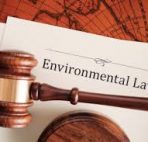GLOBE-Net, June 29, 2017 – The Government released a discussion paper as part of its efforts towards reviewing and modernizing environmental assessment and regulatory processes.
Drawn from extensive public consultations, Expert Panel reports and Parliamentary studies conducted over the past 12 months, the paper outlines potential reforms being considered to rebuild trust and modernize Canada’s environmental and regulatory processes. This includes a review of the Canadian Environmental Assessment Act, 2012, the National Energy Board Act, the Fisheries Act, and the Navigation Protection Act.
The proposed reforms are based on the guiding principles of early, inclusive and meaningful public engagement; nation-to-nation, Inuit-Crown, and government-to-government partnerships with Indigenous peoples; and timely decisions based on the best available science and traditional knowledge.
“The environment and economy go hand in hand. That’s why our government will deliver environmental assessment and regulatory processes that regain public trust, protect the environment, support reconciliation with Indigenous peoples and ensure good projects go ahead that get resources to market sustainably”, noted Catherine McKenna, Minister of Environment and Climate Change.
The discussion paper outlines a potential path for good projects to proceed in partnership with Indigenous peoples and effective, science-based, enforceable conditions, with clear timelines. The Government of Canada is interested in the views of Canadians to inform its decision-making as it considers what policy, program and legislative changes to make.
Key measures being considered include:
- Establishing a single government agency responsible for assessments of federally designated projects. The review would go beyond environmental impacts to also consider social, health and economic aspects of a project and require a gender-based analysis. Joint assessments will be undertaken with the life cycle regulator for major energy transmission, nuclear and offshore oil and gas projects. Each review will draw on carefully reviewed scientific evidence, Indigenous knowledge and available data on the cumulative effects in the region where the project is planned.
- Requiring an early planning phase to foster greater collaboration and engagement between proponents, Indigenous peoples, stakeholders, the public and federal and provincial governments. This will build a common understanding of interests and issues and provide greater clarity and certainty to proponents.
- Early and regular engagement and partnership with Indigenous peoples based on recognition of Indigenous rights and interests from the outset, seeking to achieve free, prior and informed consent through processes based on mutual respect and dialogue.
- Restoring lost protections and incorporating modern safeguards to the Fisheries Act and the Navigation Protection Act.
The stated aim aim is to modernize the project assessment process so that decisions can be made effectively and efficiently in collaboration with provinces, territories and Indigenous peoples — with the goal of having one assessment for one project. This will position us to remain globally competitive, attract investment, develop natural resources responsibly and advance a clean growth economy.
In June 2016, the Government launched a comprehensive review to address concerns about previous reforms to environmental assessment processes, lost protections for our fisheries and waterways, and the need to modernize the National Energy Board.
Moving forward, the Government will work closely with provinces and territories, Indigenous peoples, industry, environmental groups and the public to ensure the right measures are put in place.
Canadians are invited to share their views on the discussion paper at www.canada.ca/environmentalreviews until August 28, 2017.

